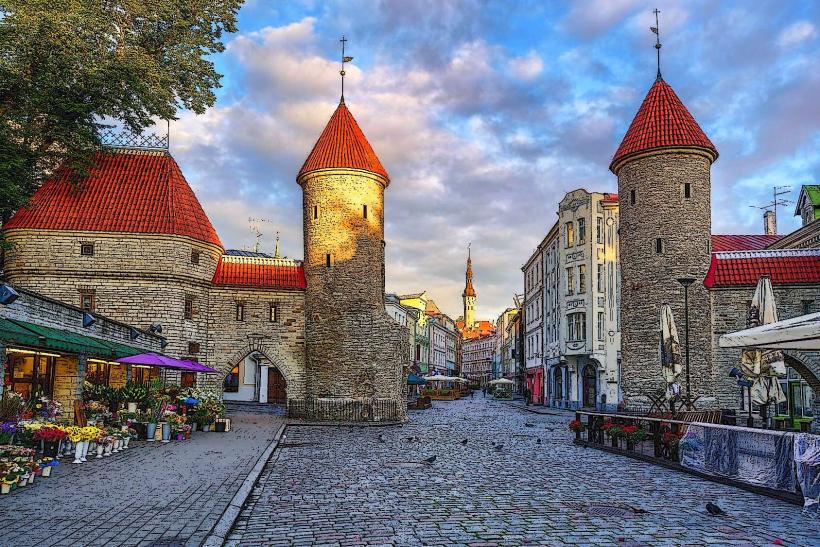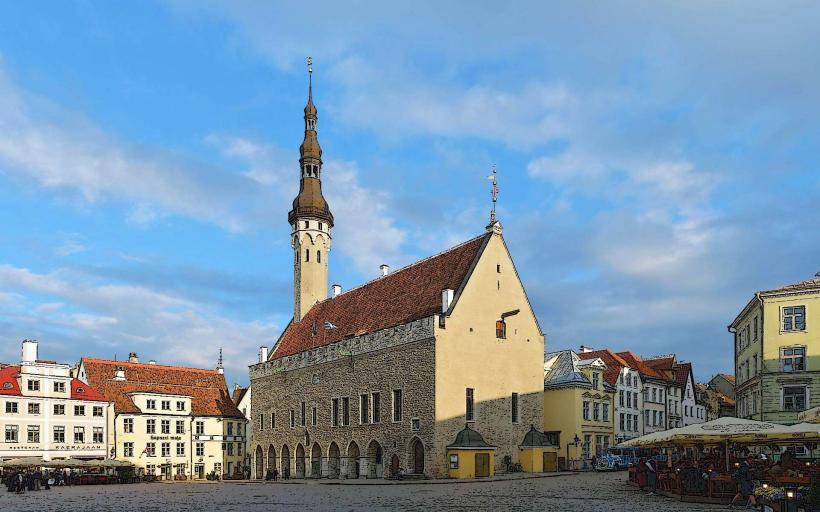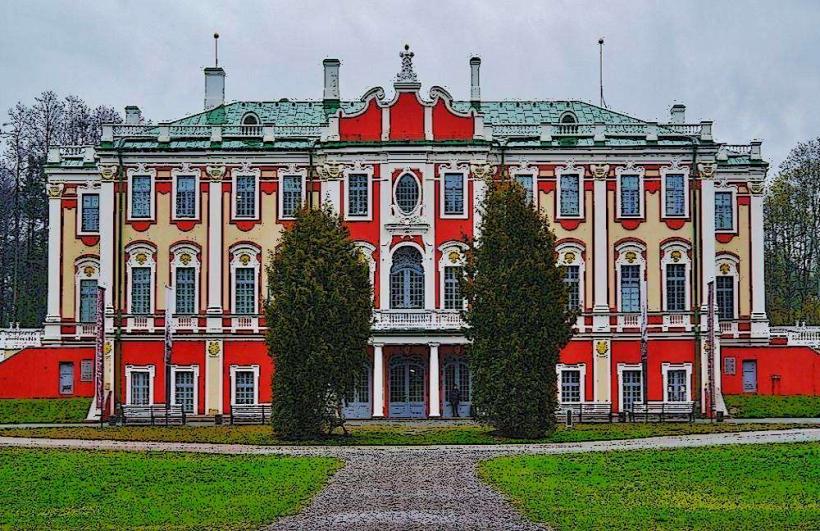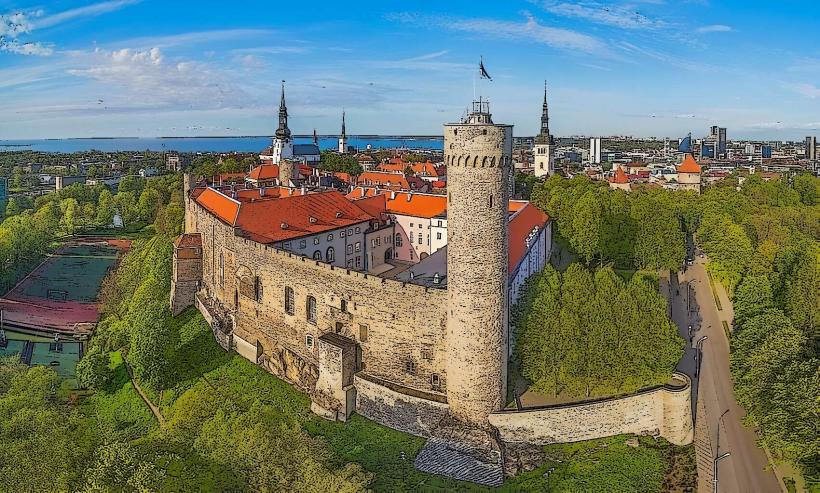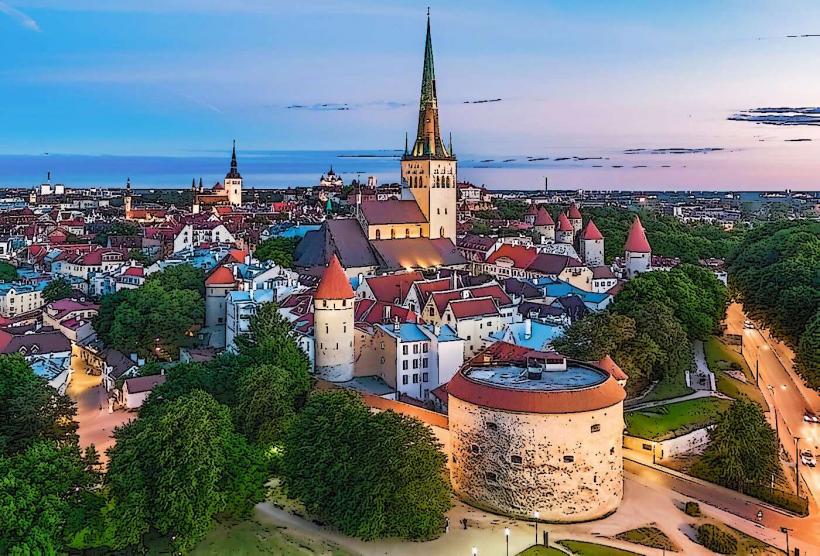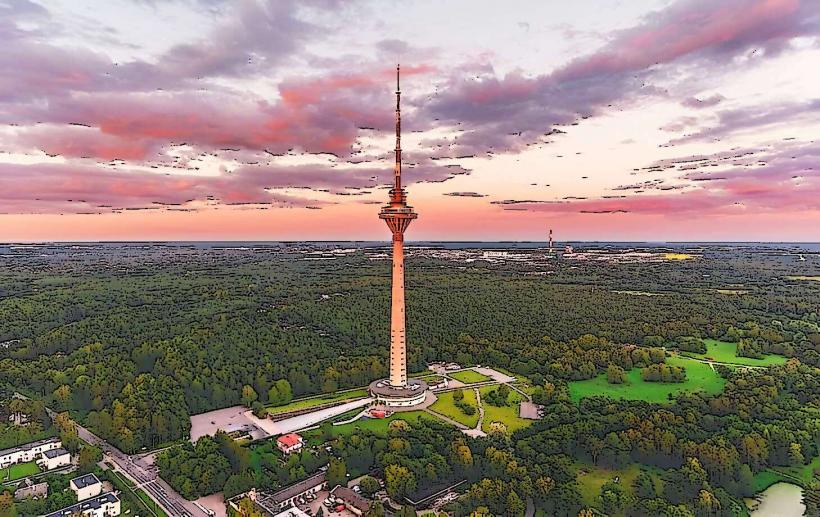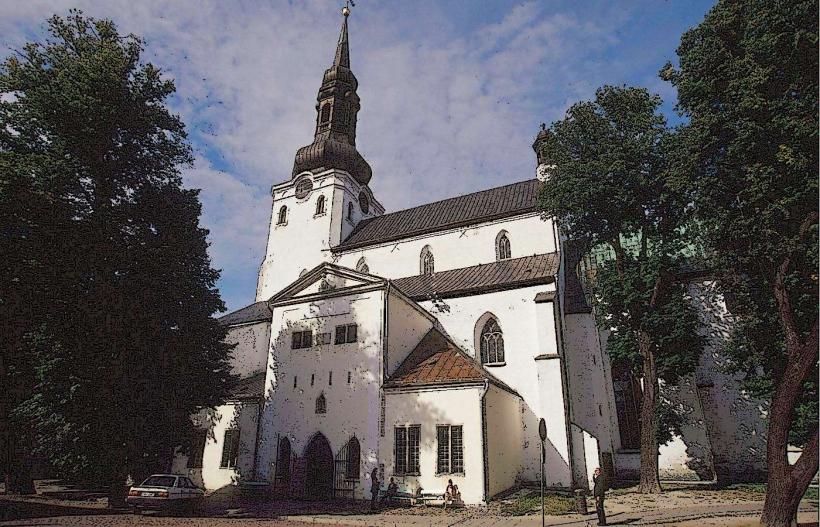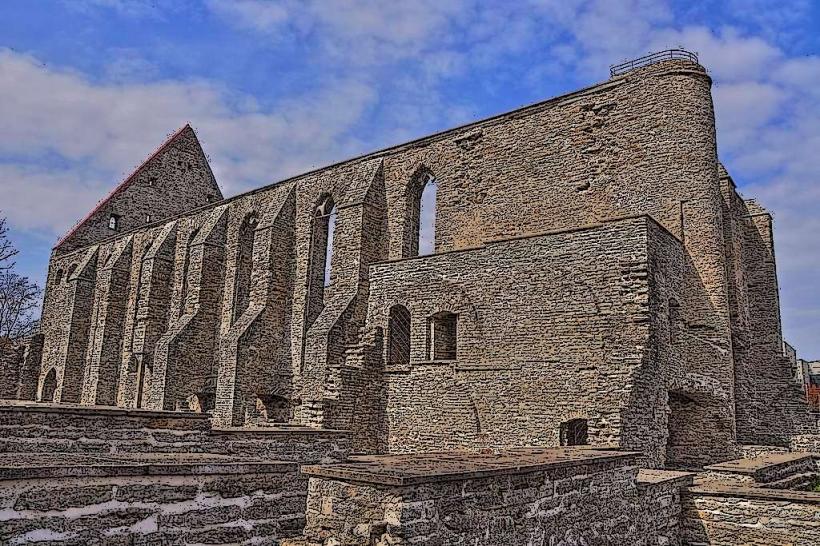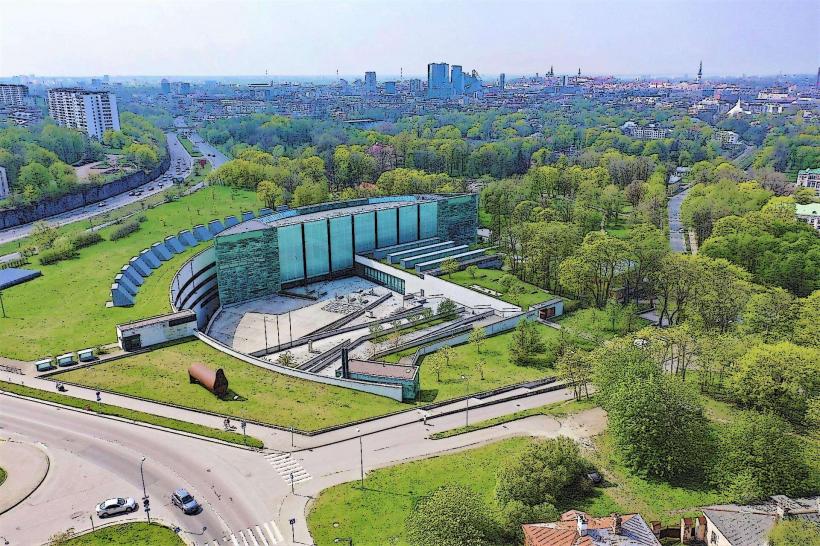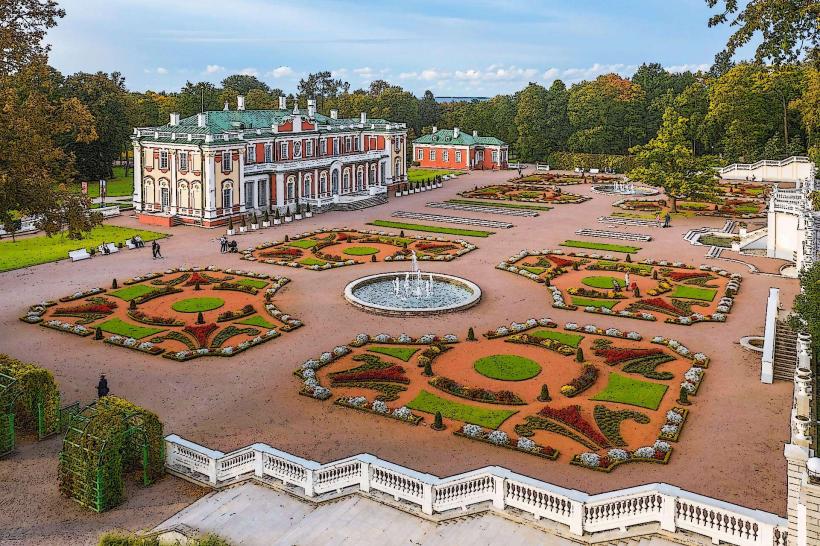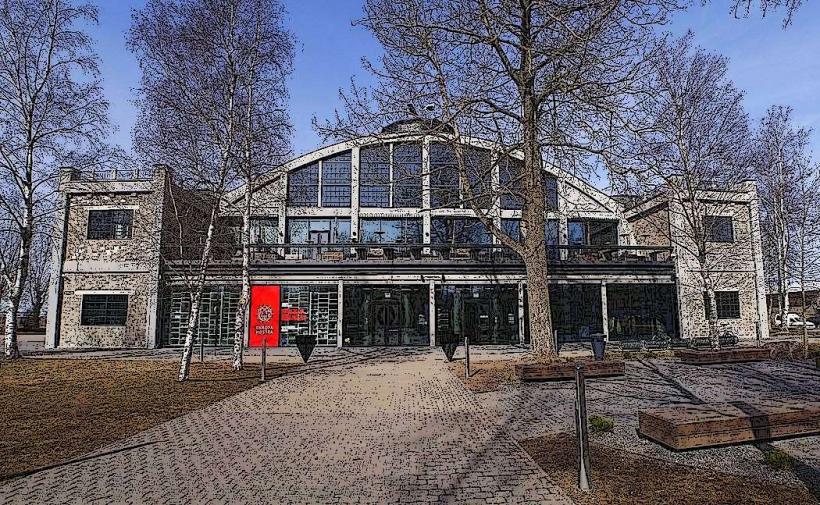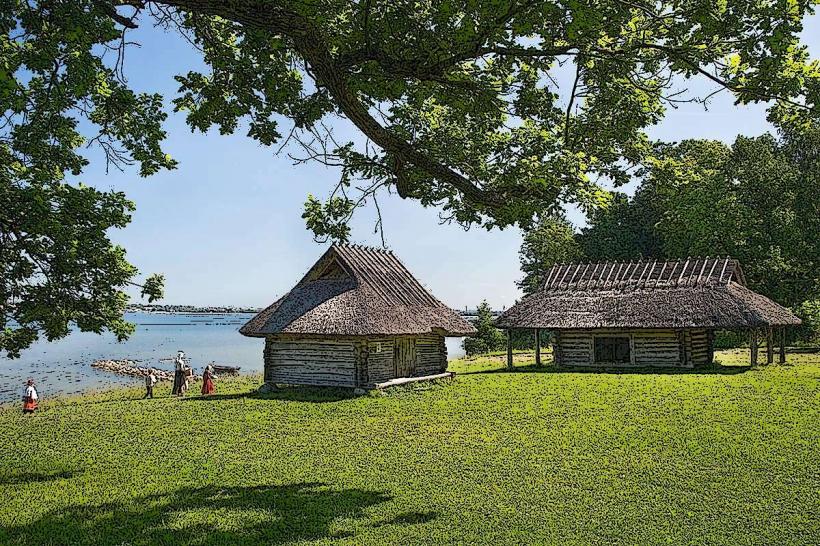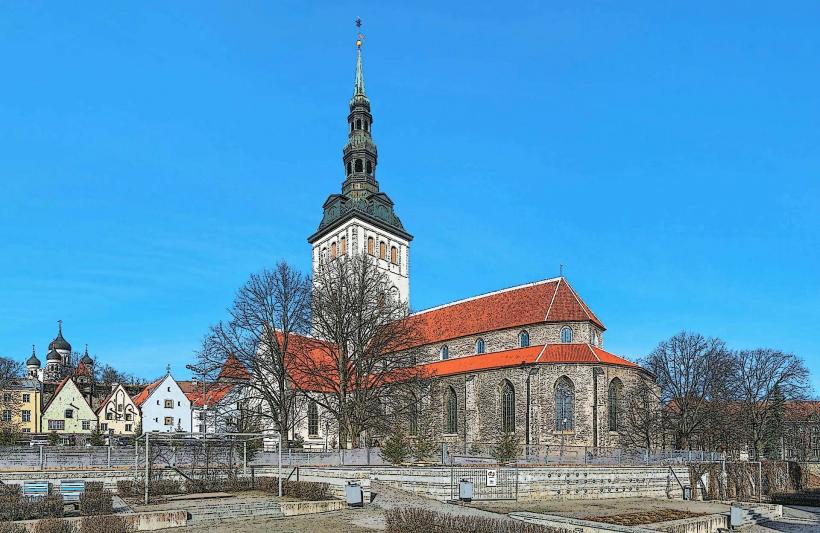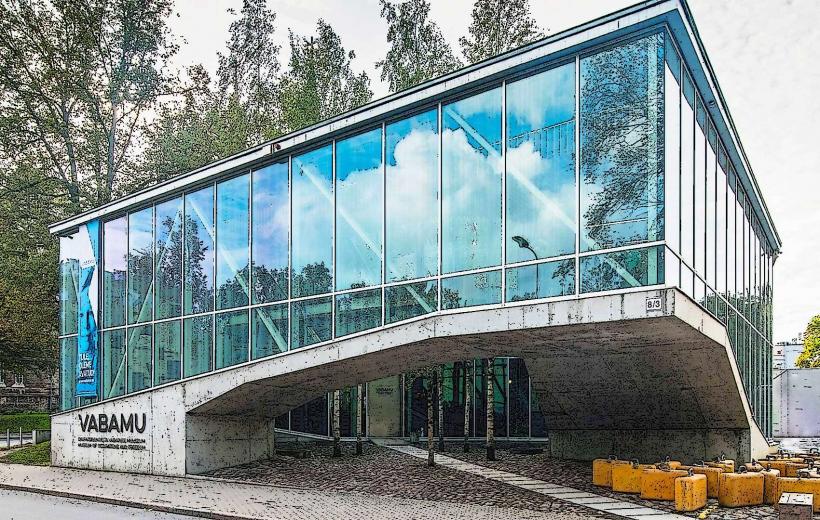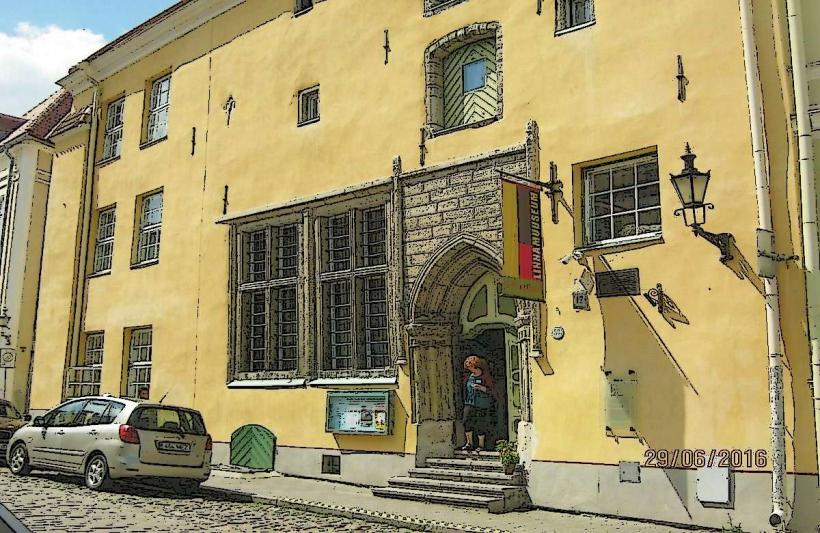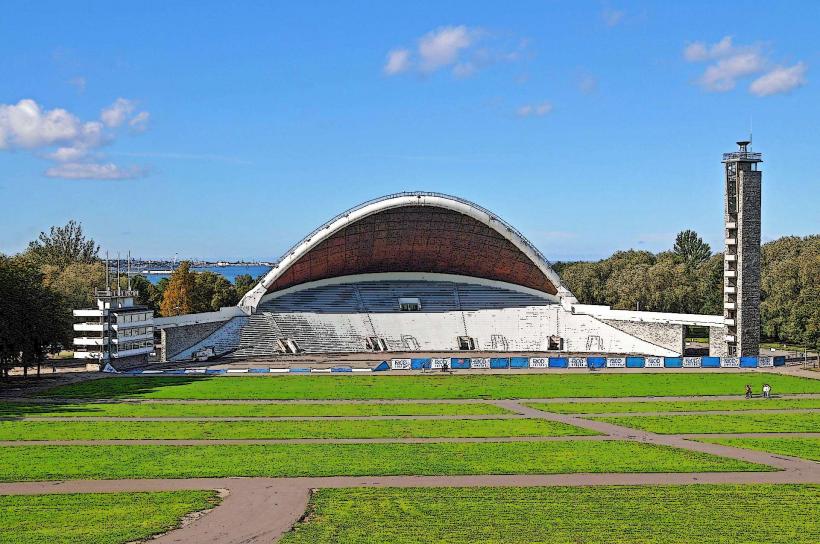Information
Landmark: Tallinn Botanic GardenCity: Tallinn
Country: Estonia
Continent: Europe
The Tallinn Botanic Garden (Tallinna Botaanikaaed) is a major green space located in Tallinn, Estonia, known for its diverse plant collections, beautiful landscapes, and educational programs. It is the largest botanical garden in Estonia and serves as a vital center for research, conservation, and public enjoyment of nature. The garden offers a peaceful escape from the city while showcasing the natural beauty of the region.
Here’s a detailed look at the Tallinn Botanic Garden:
History and Background
Founding:
- The Tallinn Botanic Garden was established in 1961, with its roots in earlier efforts to create a botanical garden in the region. The garden was created by the Estonian Academy of Sciences and is now administered by the University of Tallinn.
- The initial purpose was to gather and study plant species that could be used for scientific research, plant breeding, and the promotion of environmental education. Over the years, the garden expanded to become an important site for conservation and biodiversity studies in Estonia.
Location:
- The garden is situated about 10 kilometers from the city center, in the picturesque area near the Pirita River. Its location provides visitors with access to a variety of natural habitats, including woodland, wetland, and coastal areas.
Botanical Collections and Exhibits
Plant Diversity:
- The Tallinn Botanic Garden is home to an extensive collection of plant species from around the world, with a focus on the flora of Estonia, as well as plants native to Europe, Asia, North America, and other regions.
- The garden's collections include a wide variety of trees, shrubs, flowers, aquatic plants, succulents, and tropical species. The garden is divided into thematic sections, each dedicated to a specific type of plant or ecological environment.
Thematic Gardens:
- Alpine Garden: This section of the garden features mountain plants that thrive in rocky and high-altitude conditions. Visitors can enjoy an array of wildflowers, cushion plants, and succulents.
- Rose Garden: The rose garden is a highlight of the Tallinn Botanic Garden, with hundreds of rose varieties displayed in beautifully landscaped beds. The garden offers a stunning display of roses in summer and early autumn.
- Medicinal Plant Garden: This section highlights plants that have been historically used for medicinal or therapeutic purposes, offering an educational experience about the traditional uses of plants in folk medicine.
- Tropical and Subtropical Greenhouses: The greenhouses are home to a wide range of tropical and subtropical plants, including species from tropical rainforests, deserts, and Mediterranean climates. These greenhouses are particularly popular during the colder months when visitors can experience tropical environments indoors.
- Wetlands and Coastal Gardens: Reflecting Estonia’s natural landscapes, the garden features areas dedicated to wetland plants and coastal vegetation, which thrive in the specific conditions of Estonia’s diverse ecosystems.
Plant Conservation:
- The Tallinn Botanic Garden plays an important role in the conservation of rare and endangered plant species. It participates in national and international efforts to preserve biodiversity and protect threatened plant species.
- The garden hosts a variety of research projects focused on plant breeding, genetic diversity, and climate change impacts on plant life.
Visitor Experience
Walking Trails and Scenic Views:
- The botanic garden offers beautiful walking paths that wind through the various themed sections, allowing visitors to explore the lush plant life in a serene setting.
- The garden’s location along the Pirita River provides picturesque views, and visitors can often see waterfowl and other wildlife in the wetlands.
Educational Programs:
- The garden is not only a place for relaxation but also a center for education. It offers a wide range of educational programs for schoolchildren, families, and adults. These programs often focus on plant science, environmental sustainability, and ecology.
- The guided tours are available, providing insights into the history of the garden, the plants on display, and the importance of botanical conservation.
Seasonal Events:
- The Tallinn Botanic Garden hosts several seasonal events throughout the year, such as flower exhibitions, plant sales, and workshops on gardening and sustainable living. These events often coincide with the changing seasons, offering unique opportunities to experience different aspects of plant life.
- In spring and summer, the garden hosts flower festivals and outdoor concerts, making it a vibrant venue for cultural activities.
Café and Gift Shop:
- The garden has a café where visitors can relax and enjoy light snacks and drinks while surrounded by beautiful plant life.
- The gift shop sells a variety of botanical-themed items, including plants, gardening tools, seeds, and educational materials on plant care and environmental sustainability.
Conservation and Research
Plant Breeding and Research:
- The garden is involved in scientific research in the field of plant genetics and breeding. Researchers work on creating new plant varieties that are more resistant to pests, diseases, and changing climate conditions.
- The garden also collaborates with other botanic gardens and universities to advance the study of plant evolution and climate adaptation.
Biodiversity and Ecosystem Services:
- The Tallinn Botanic Garden plays a role in promoting the understanding of ecosystem services provided by plants, such as air purification, carbon sequestration, and soil stabilization.
- By cultivating a wide range of species, the garden also helps in the protection and restoration of ecosystems that are vital to human well-being.
Practical Information
Opening Hours:
- The Tallinn Botanic Garden is generally open year-round, with extended hours in the summer. It is recommended to check the official website for up-to-date information on hours and special events.
Admission:
- Admission fees apply, with discounts available for students, seniors, and children. The garden also offers annual memberships for frequent visitors.
Accessibility:
- The Tallinn Botanic Garden is accessible by public transport, with several bus routes stopping near the garden. There is also parking available for visitors who choose to drive.
Conclusion
The Tallinn Botanic Garden is a true gem in Estonia, offering an enriching experience for visitors who are interested in nature, plant diversity, and environmental education. With its stunning collection of plants from around the world, seasonal events, and dedication to conservation, the garden is a must-visit destination for anyone looking to explore Estonia’s natural beauty. Whether you are a plant enthusiast, a family looking for a relaxing day out, or a visitor keen to learn more about biodiversity, the Tallinn Botanic Garden has something for everyone.

